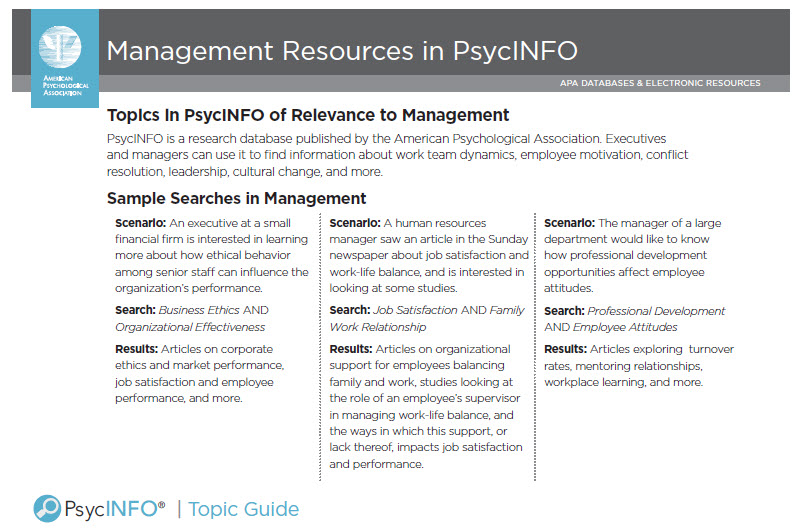Librarians know that PsycINFO® is a wealth of information not just for psychology, but for many other topics as well. After all, our behavior impacts everything we do, so there is an aspect of behavioral science to nearly every discipline.
Students, however, are often unaware of this and think of PsycINFO, and other APA databases, as only covering topics in psychology.
Topic Guides are an instructional aid designed to help make the case as to why a student in a health sciences, education, or management class should consider searching PsycINFO.
At this time, 20 different interdisciplinary Topic Guides are available on our website. Each contains three sample search scenarios, and a list of selected Index Terms. This helps students get a sense of the way in which behavioral scientists engage with these disciplines, and the language to use to find that information in PsycINFO. Continue reading




